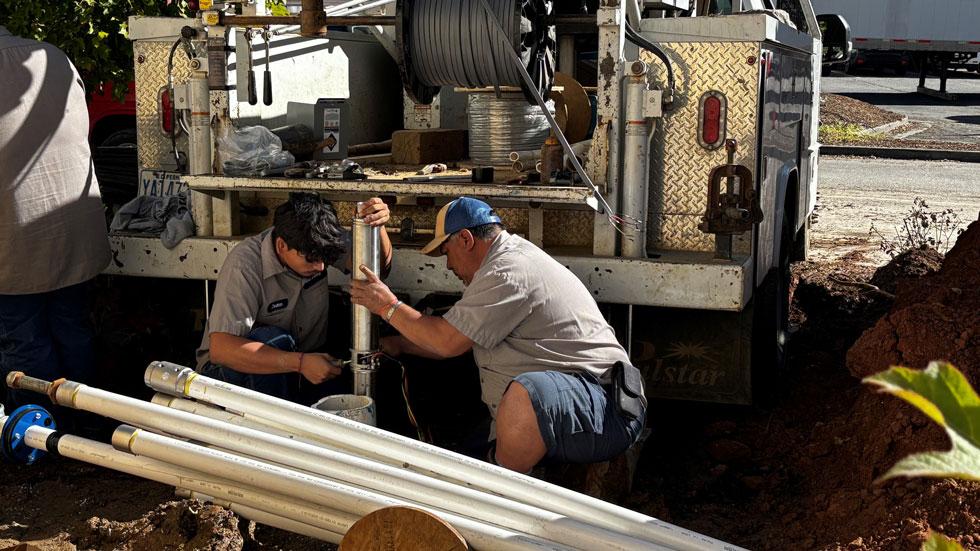
When Hurricane Helene slammed into Asheville, North Carolina in September 2024, Stephen Yalof’s first concern was for the safety of the many employees of Tanger Outlets Asheville, as well as the broader Asheville community. His next thought was, “How can we help?”
“One of our company’s core values is ‘consider community first’,” says Yalof, president and CEO of Tanger (NYSE: SKT), an owner and operator of outlet and open-air retail shopping destinations headquartered in Greensboro, North Carolina.
“Since our Asheville property is located on relatively higher ground and is easily accessible from major roads, our parking lot and shopping center became the go-to destination for FEMA, for linemen from all over the country, and for first responders. We held a blood drive on the premises, and it became a place where people could deliver the donations that were pouring in from everywhere,” Yalof says.
The extensive devastation caused by the flooding from Hurricane Helene in the Asheville area left many victims isolated.
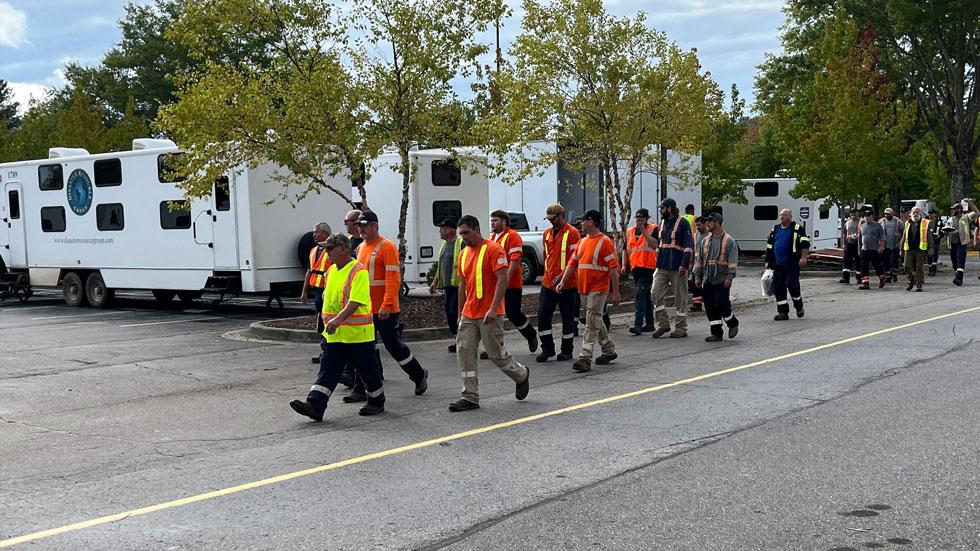
“Our head of security talked to the police department about what could be done to get help to people, and they told him that a large drone would be ideal to deliver medicines, oxygen tanks, generators, phone chargers, and other supplies,” Yalof says. “We said yes, even before we knew the cost, which turned out to be $50,000. We were happy to do it.”
Tanger is one among many REITs that invest financially in the regions where their properties are located, and whose employees are deeply invested in their communities. When disaster strikes, REITs often have the resources, staff, expertise, and physical space to provide help where it is needed most.
Supplies and Space for Los Angeles Wildfire Victims
In January 2025, the world watched in horror as more than 16,000 homes and businesses were destroyed by wildfires in the Pacific Palisades and Altadena neighborhoods of Los Angeles.
“Our company is so large, we had some of our employees’ lives affected by the fires, along with our vendors’ employees,” says Rob Antrobius, a senior vice president and market officer for Prologis, Inc. (NYSE: PLD) in Los Angeles.
“The wildfire damage was so widespread that pretty much everyone had a connection to someone who had been impacted. Even though we are a global company with offices in major cities around the world, our staff live in each affected location and we are honored to help out in our communities whenever we can,” he adds.
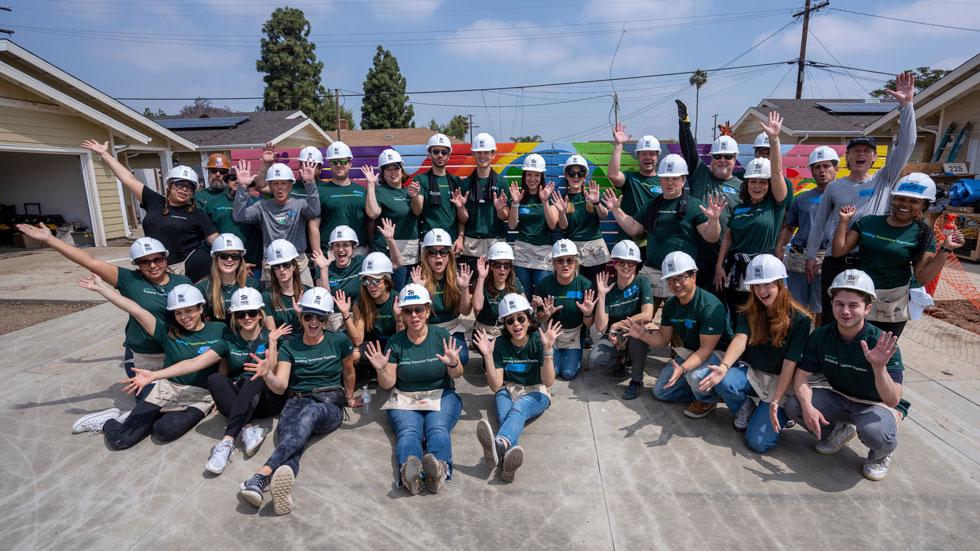
Prologis, which has had a longstanding relationship with Habitat for Humanity Greater Los Angeles (Habitat LA), quickly offered several warehouse options that the organization could use to store donated goods and essential items for families and individuals impacted by the fires.
“Our staff is well-connected and called the mayor’s office shortly after the fires began to offer help,” Antrobius says. “We donated the use of a 120,000-square-foot warehouse to Habitat LA, which they’re still using to store things like furniture and mattresses that people will need as they rebuild their lives.”
In addition, Prologis helped organize support from some of its vendors to contribute goods and services toward Habitat LA’s ReBuild LA Wildfire Relief campaign, including:
- One Plumbing is providing complimentary plumbing services
- Smith & Severson Builders is offering pro bono services to assist in securing the Certificate of Occupancy for the warehouse, covering both inspection and permit fees.
- Papé Material Handling is donating a forklift, helping staff to manage warehouse operations, and support the campaign’s logistics.
“A lot of our employees are also doing things on their own to help wildfire victims, and Prologis always supports them with paid time off,” Antrobius says. “As a company, we have an annual impact day where our staff all over the world volunteer in their community at food banks, schools, or anything that is meaningful in their area.”
In Los Angeles, more than 100 Prologis employees have volunteered over the past decade to build and restore homes with Habitat LA, along with building playhouses for families, and building homes for veterans and low-income families. Prologis also has contributed more than $150,000 in donations to Habitat LA. Its global “Spaces for Good” program offers temporary, unoccupied warehouse space for nonprofit and emergency response organizations at no cost.
Like Prologis, AvalonBay Communities, Inc. (NYSE: AVB) has a large property footprint and an extensive network of staff and residents in Southern California, including 36 communities in Los Angeles and Ventura Counties with more than 12,000 homes.
“In the first few days of the wildfires, 12 of our buildings were in evacuation warning zones,” says Eric Ostgarden, Los Angeles-based vice president of property operations for AvalonBay. “Fortunately, none of them sustained direct fire damage, but several had minor smoke damage, and one had damage from the high winds.”
AvalonBay is well-prepared with local and national emergency response teams and quickly mobilized their resources to keep residents safe and informed, he says.
“After the wildfires, we helped about 70 families who had been displaced move into our buildings,” Ostgarden says. “We waived their application fee, reduced their deposits, and gave them flexibility to rent for two or three months if that’s all they need, but we expect most would be there for a year or more.”
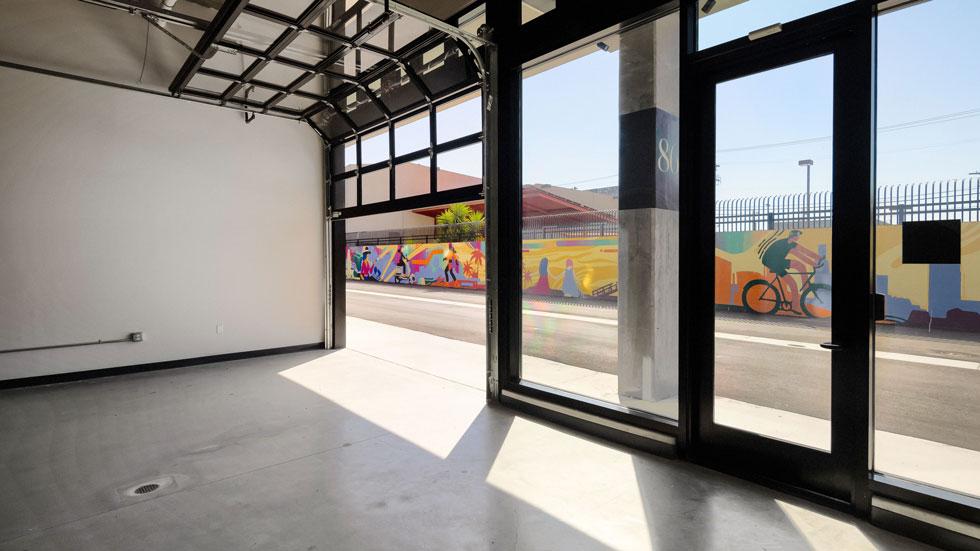
In addition to that support for displaced families and individuals, AvalonBay partnered with the Institute of Contemporary Art – Los Angeles and Griffin Capital Company to provide studio space for impacted artists at AVA Arts District, AvalonBay’s newest Los Angeles apartment community, which opened in spring 2024.
“When we design a new development, we try to integrate it into the surrounding neighborhood,” says Mark Janda, senior vice president of development for AvalonBay in Irvine, California. “AVA Arts District is in a creative cultural center with a vibrant history where artists would often find space for their studios, so we included ‘maker spaces’ as part of the mixed-use component of the development.”
Numerous artists were devastated by the wildfires, particularly in Altadena, and lost not only their homes but their studios and much of their artwork.
“We’re providing 10 local artists with free studio space in AVA Arts District and will cover their rent, utilities, and maintenance for six months,” Janda says. “One artist was just six weeks away from a show and lost all of her artwork along with her studio. In the midst of this tragedy, it’s important to give her and other artists the time and space to work, as well as create a sense of community with each other.”
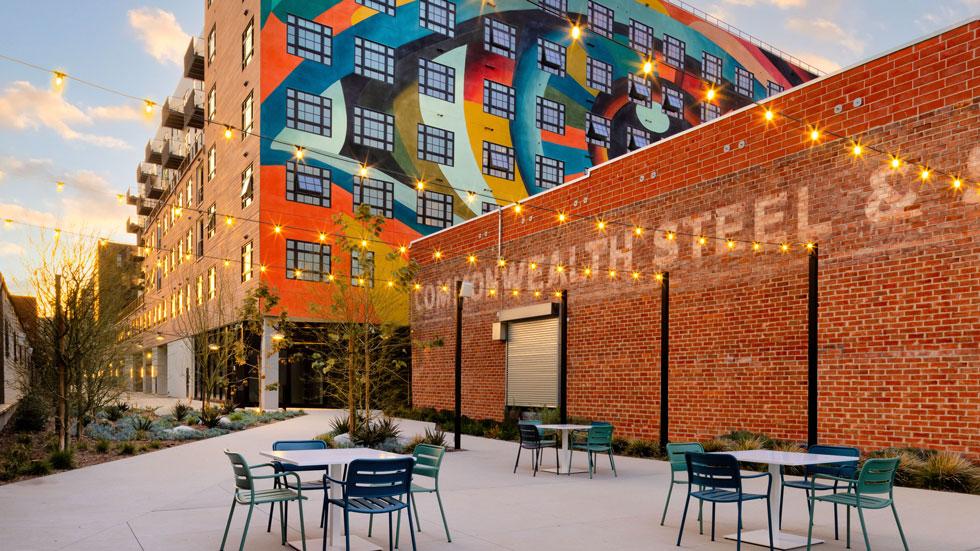
In addition, AvalonBay offered mental health support to their Los Angeles area employees and access to the AvalonBay Associate Relief Fund, which helps associates who need immediate financial assistance following a disaster or personal hardship. In addition, AvalonBay established a donation site in partnership with the American Red Cross and matched all donated funds, as the REIT is a member of their Disaster Responder Program.
“In February, we offered every LA-based associate the opportunity to participate in a day of service after the trauma of the fires,” Ostgarden says. “They helped a variety of organizations that are supporting the fire victims, such as food banks and shelters.”
Helping Asheville Survive and Thrive
Meanwhile, rebuilding continues in Asheville and other areas hit by Hurricanes Helene and Milton in the fall of 2024. In the immediate days after Hurricane Helene, the water system at Tanger Outlets Asheville stopped working, but the center maintained power throughout the disaster.
“A week after Hurricane Helene, we drilled a well for drinking water and were able to activate bathrooms on our site to accommodate all the people spending time there,” Yalof says. “Some of our stores opened quickly, such as Under Armour, to service the first responders, plus there were food trucks in the parking lot.”
In October 2024, they opened the center for Halloween.
“This was just an organic event that was packed with locals because everyone wanted to provide a sense of normalcy for the kids in the area,” Yalof says. “The stores all gave out candy just to give back to the community, not as an effort to drive traffic or sales.”
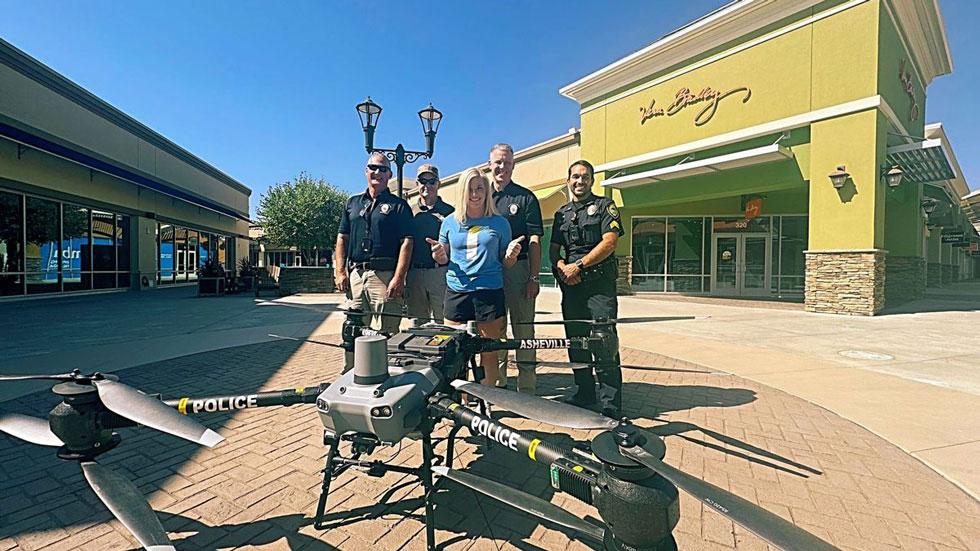
At the company’s team meeting, which was held in the city in March, Tanger provided a $100,000 donation to the City of Asheville to support ongoing relief efforts.
One of the hardest hit areas in Asheville was the River Arts District.
“We wanted to do something to support the artists who had lost their studios and galleries,” Yalof says. “We had one or two vacancies in the shopping center and offered them to artists to store their products. Then we gifted a space in our center for the Orbit Gallery, a co-op of artists.”
The expertise of REITs like Tanger, AvalonBay, and Prologis with supply chains, logistics, and delivery networks can be particularly valuable in an emergency. In the Carolinas, Prologis employees volunteered with Operation Airdrop and provided donations for supplies for that organization and the North Carolina Disaster Relief Fund. In Florida,after Hurricane Miltonthe Prologis team volunteered with Feeding America and donated a warehouse in Tampa to store food donations. The Prologis foundation donated $100,000 to two organizations helping Florida hurricane victims.
“Our employees appreciate how much we, as an organization, were there to support people in Asheville, running supplies on a daily basis, and tapping into our network of suppliers and vendors,” Yalof says. “We’ve always been honored to step up to be a resource for the communities where we operate.”





